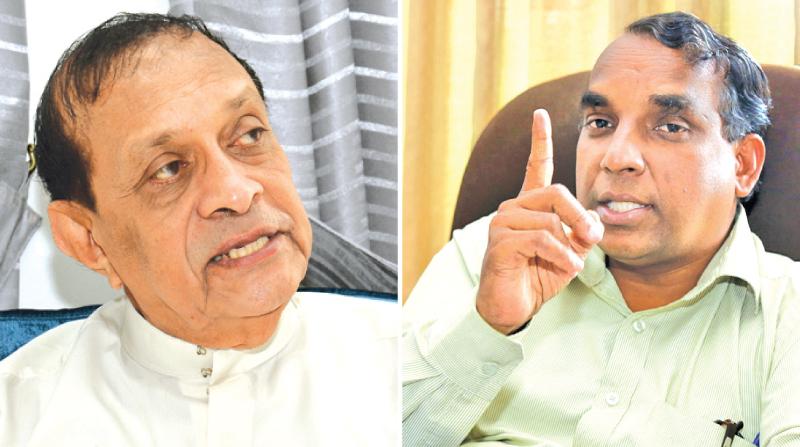
The March 12 movement, a collective of civil society groups is expected to hand in a set of recommendations to the Provincial Councils Minister shortly, to overcome key issues in the new electoral system so that hopes on the jinxed provincial council election can be revived.
The movement backed by leading election monitors PAFFREL and CMEV, appointed an expert panel on June 1 to study and come up with recommendations to address the shortcomings in the new electoral system that attracted a lot of criticism after the February 10 local government election.
“We are hopeful this panel will come up with a set of practical recommendations by July 20,” PAFFREL Executive Director Rohana Hettiarachchi told Sunday Observer.
Public outcry
Although there is a huge public outcry, including from the Independent Election Commission itself, to hold the PC election before the turn of the year, the polls had been indefinitely postponed partly because of the strict procedures in the new law and also because of the flaws in the new electoral system, demonstrated clearly at the recent mini election.
The Provincial Councils Election Amendment Act No.17 of 2017 dictates that the Delimitation Report must be approved by a Parliamentary two thirds majority within a month of its submission to the Minister by the Committee. According to the law, if the report is not passed in Parliament within the stipulated time it needs to be referred to a review committee appointed by the Speaker.
The Delimitation Committee Report was completed and handed over to the Minister by the Committee in February this year and it was tabled in the House by the Minister early March. The time to debate the report in Parliament as well as the period to appoint a five member review committee under the chairmanship of the Prime Minister has already elapsed. Therefore, holding of the Provincial Councils election now hangs in the balance.
Meanwhile, the Polls Monitors on Thursday wrote to the Speaker seeking a clarification on the stance of the political parties re the next PC election. They also wanted to know who is responsible for holding the elections, now that the delimitation process is over. They have asked if it was the President, the Prime Minister, the Speaker, the Election Commission or the legislation.
While demanding to know the Speaker’s own opinion on the matter as to when the election should be held and if there was an internal discussion among the party leaders on the same, they have queried if the House will come up with a road map to get over the current stalemate.
Alternative procedures
The Expert Panel appointed by the Polls Monitors will focus on alternative procedures to appoint additional members from district lists (50%) which gives the party secretaries undue powers. One suggestion is to select members who have marginally lost the election. Another suggestion is to increase the number of bonus seats to the winning party. This is expected to increase the governing ability of the Council as well.
The experts are also required to recommend means to resolve overhangs without increasing the size of the Council. There is also a desire to increase the number of women councillors as at present the 25% rule does not apply here. As a solution the Polls Monitors have suggested increased nomination of women candidates in the FPP constituencies.
Under the new Provincial Councils Elections law a total of 437 members are to be appointed to office, of which 222 will be elected under wards and 215 will be appointed from the list. The total number of PC members remains the same under the new Act.
While some, especially the Joint Opposition, clamoured for a return to the old electoral system, neither the Government nor the Polls Monitors have shared this sentiment.
“We have spent a great deal of money and time on developing a new electoral system for the country to replace the much criticised old preferential system, National Coordinator, CMEV, Manjula Gajanayke said adding that retracting this now is not an option.
Somewhat belatedly, the House debated the Delimitation Committee Report on July 5. The legislators failed to come up with a conclusive decision as to when the next Provincial Council election will be held, despite it being the key objective of the endeavor.
Earlier, the Election Commissioner met the Speaker and the party representatives separately in a bid to expedite holding of the PC election. He said if the election is to be held by December this year, the Minister must issue the gazette at least in September.
